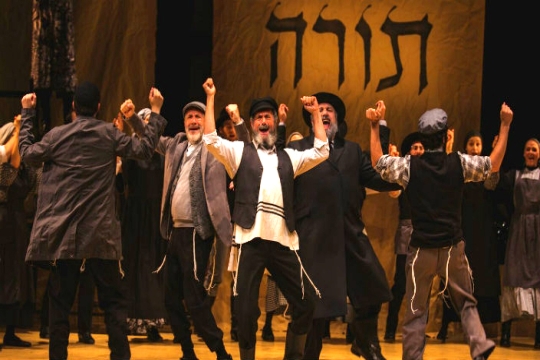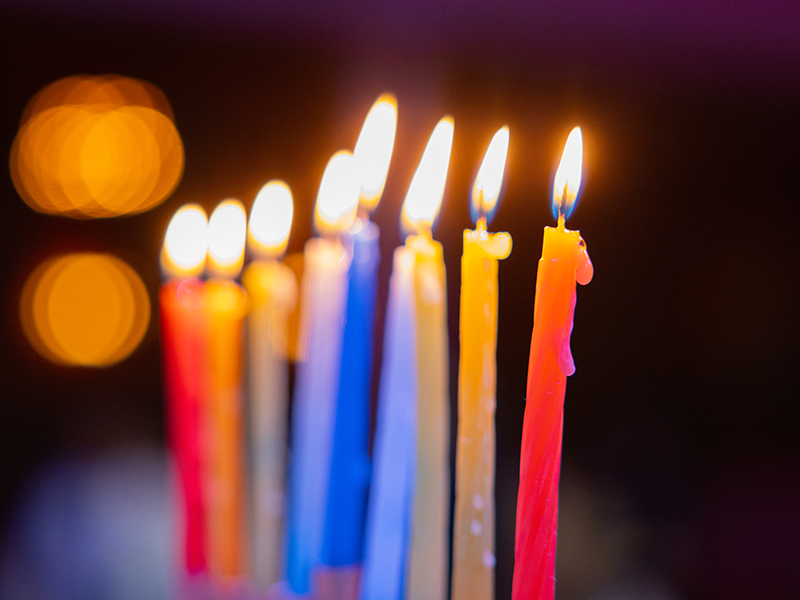
In recent years, Yiddish has experienced a remarkable resurgence. Originating as a German dialect primarily used by Ashkenazi Jews in Central and Eastern Europe, it blends Hebrew, Aramaic, Germanic, and Slavic elements. Yiddish became the primary language of many European Jewish communities in the 10th-13th centuries but declined in the 19th-20th centuries due to assimilation and the promotion of Hebrew over Yiddish amongst the Jews in British-mandate Palestine.
While many Ultra-Orthodox communities still speak Yiddish as a primary language, Yiddish has also experienced a cultural and educational resurgence in contemporary times, especially with the rise of digital platforms and social media. Instagram sensations like the Shvesters, with their 125K-strong following, showcase Yiddish's appeal to new generations. YouTube shorts, university courses, and cultural events have further revived it among culturally progressive Jewish circles where the language may not have been otherwise passed down.
Whether you're reconnecting with your heritage or exploring linguistic quirks, Yiddish offers rich expressions to spice up conversations. Here are 10 phrases you should know and use to participate in the Yiddish resurgence:
1. Ay-yay-yay! (אײַ-ײַ-ײַ)
Meaning: Depending on context (including the way it's said or the facial expression when declared), it can mean dismay or the opposite - delight!
Rhymes with: "Hi, hi, hi"
Example: "Ay-yay-yay, I forgot my phone charger again!" Or "Ay-yay-yay!" when your partner shows up to a dinner date looking like a million bucks.
Use it when expressing frustration or pleasure.
2. Balebusta (בעלעבוסטע)
Meaning: Literally, "Owner of the shop." It can also mean a skilled and well-rounded manager of many dimensions.
Rhymes with: "Hall Agusta"
Example: Your mom, who managed to cook dinner, prepare a work brief, and sew the tear in your sweater - all at once! What a balebusta!
Use it when praising someone's organizational abilities.
3. Bobkes (alternate spelling: Bupkiss) (באָבקעס)
Meaning: Literally, "beans." It can mean an insulting sum or an absurdity.
Rhymes with: "Cup this"
Example: "He offered you what for that fine set of china?? Bobkes !"
Use it when dismissing ridiculous ideas.
4. Bubbe-mayse (בובֿע-מעשׂה)
Meaning: Literally, "grandmother's tale." It can mean an old superstition or an unbelievable story.
Sounds like: "Bub-eh my-seh"
Example: "My cousin swears that dancing the hora in a thunderstorm guarantees sunshine tomorrow - what a total bubbe-mayse!"
Use it when sharing astonishing news.
5. Shlemiel (שלעמיל)
Meaning: "Clumsy or foolish person." - the person who spills soup on another person.
Rhymes with: "A steal"
Example: "I dropped my soup right on your pants again; I'm such a schlemiel!"
Use it when laughing at personal mishaps.
6. Shlemazal (שלאַמאַזל)
Meaning: "Unlucky or hapless individual." - the person who gets soup spilled on them.
Rhymes with: "a nozzle"
Example: "You spilled your soup on me again? Am I a shlamazal, or am I a shlamazal?!"
Use it when commiserating about your own or someone else's bad luck.
7. Tachles (Alternate spelling: Tachlis) (טאַכלעס)
Meaning: Seriously, genuinely, or getting down to business.
Rhymes with: "stock-less"
Example: "Are you tachles about starting this new project?"
Use it when seeking clarification or confirmation, emphasizing sincerity, or transitioning from small talk to serious discussion.
8. Kibbitz (קיביץ)
Meaning: A casual conversation or joke.
Rhymes with: "tickets"
Example: "Quit kibbitzing and let's talk tachles!"
Use it when engaging in lighthearted banter.
9. Feh! (פֿעה)
Meaning: Disgust or distaste.
Rhymes with: The French "le"
Example: "Feh! *spits* This coffee's disgusting!"
Use it when expressing strong dislike.
10. If my bubbe had wheels, she'd be a wagon (אױב מײַן בובֿע האָט וועלן, וואָלט זי געווען אַ וואַגאָן)
Meaning: Humorous exaggeration
Example: "If only you studied more, you might get into Harvard!"
"And if my bubbe had wheels, she'd be a wagon!"
Use it when responding to absurdity.
Embracing Yiddish is more than just learning phrases; it's a gateway to reconnecting with one form of our rich cultural heritage - and anyone, Ashkenazi or otherwise, can do so. Yiddish carries the stories, traditions, and resilience of many of our ancestors. By incorporating Yiddish into our everyday conversations, we can inject humor into our conversations, share the warmth (and sometimes absurdity) of Jewish culture, honor our roots and the struggles of past generations, add depth and nuance to our expressions, and connect with a global community that shares this heritage. As we revive Yiddish, we revive memories, emotions, and values. Let's continue exploring, sharing, and celebrating this precious part of Jewish heritage!
Related Posts

Meet the Man Amplifying the Sounds of the Borscht Belt

Honoring Legendary Theater Impresario Joseph Papp on the Centennial Year of His Birth


